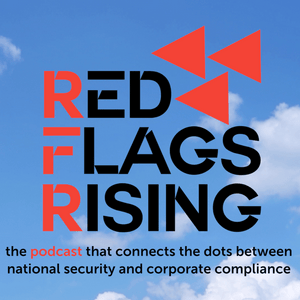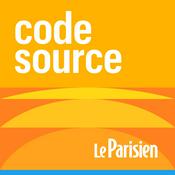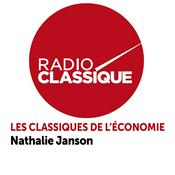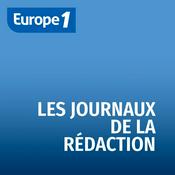37 épisodes
- Mike and Brent return for the new year with a refresher on The Fraud Diamond Framework(SM) introduced in Episode 34 and an explanation of how it would apply in practice as trade compliance professionals try to expect the unexpected in 2026. They discuss the importance of designing and implementing “compliance backstops” as geopolitical guardrails (01:47), how Stoic philosophy and the good work of Mo Bunnell (CEO and Founder of Bunnell Idea Group, author of Give to Grow) help build resiliency (03:40), review The Fraud Diamond Framework(SM) (05:57), describe how the framework can help trade compliance personnel to make and defend triage decisions (10:59), the implications of many trade compliance programs reaching a point in their evolution where they need to be able to demonstrate true integrity and effectiveness (13:45), the new 25% tariffs on certain semiconductors (14:38), and notable economic sanctions enforcement decisions related to lawyers’ advice or lawyers themselves (15:56). They conclude with Brent’s first Managing Up of 2026 (21:04).
Origins & Parallels - The FCPA and U.S. Export Controls, Yesterday and Today, with Severin Wirz
29/12/2025 | 40 minMike and Brent welcome author and compliance professional Severin Wirz to the pod to discuss his first book, Bribery Beyond Borders: The Story of the Foreign Corrupt Practices Act. They discuss with Severin his inspiration for writing the book (02:44), the book’s focus on the people and personalities involved in the events between 1975 and the 1977 passage of the FCPA (05:50), the political and geopolitical scandals that kept up the momentum for a law banning overseas bribery (06:59), what his research uncovered beyond the traditional FCPA origin story (10:49), the relevance of the Cold War to the FCPA’s passage—specifically how corruption by capitalists fed into Communist propaganda (12:39), how the political “sausage” was made (16:33), stories of personal courage and risk-taking that made the FCPA possible (18:27), the use of the phrase “post-Watergate morality” as a critique of the FCPA and other reform efforts (21:48), how anti-corruption laws actually help American companies competing for business overseas (29:21), where the FCPA stands today (31:17), and how corruption is a social construct that, to paraphrase former federal appellate judge and author himself John Noonan, to exist as a legal concept must first exist in the minds of everyday people (35:40).
Mike and Brent then conclude with another installment of Brent Carlson’s “Managing Up” (38:14).
Bribery Beyond Borders: The Story of the Foreign Corrupt Practices Act—
Learn more at Corporate Compliance Insights here: https://www.corporatecomplianceinsights.com/bribery-beyond-borders-fcpa-severin-wirz/
Available at Amazon here: https://www.amazon.com/Bribery-Beyond-Borders-Foreign-Practices/dp/1735028592
More about Severin here: https://www.linkedin.com/in/severin-wirz-3574b574/
Contact Brent: [email protected]
Contact Mike: [email protected]- Mike & Brent explore the classic “Fraud Triangle” of pressure, opportunity, and rationalization and discuss Brent’s creation of a new “Fraud Diamond Framework” (SM) to help trade compliance (and other) professionals who are looking not to explain past misconduct but instead to prevent future misconduct. They discuss recent news and developments in the export controls world (00:55), how seemingly inconsistent headlines are actually consistent with each other (04:05), and how Edward Fishman’s “impossible triad” concept continues to be a useful tool for understanding what’s happening in geopolitics and trade competition (06:22), and then they launch into their discussion of Brent’s Fraud Diamond Framework (SM) (08:05).
Regarding the Fraud Diamond Framework (SM), they discuss the classic fraud triangle and the backward-looking perspective from which it was derived (09:18), and then explain the Fraud Diamond Framwork’s four elements of pressure (12:08), opportunity (13:06), something that’s too good to be true that comes at a critical time for the business (14:06), and signs of concealment (15:48). Brent next explains the Fraud Diamond Framework (SM) through a historical case study pulled from his own prior experience helping a client with a compliance commercial fraud dispute involving the acquisition of a business in China (17:35), after which they explain how the Fraud Diamond Framework (SM) can help trade compliance teams today (23:02).
They conclude with another installment of Brent’s always popular “Managing Up” segment (24:43).
Contact Brent: [email protected]
Contact Mike: [email protected]
“Chokepoints: American Power in the Age of Economic Warfare” by Edward Fishman: https://a.co/d/3Phvprs
Brent’s original NYU PCCE post, “When Loopholes Create Liability Pitfalls: A Fresh Look at Export Controls” (Aug. 25, 2023): https://wp.nyu.edu/compliance_enforcement/2023/08/25/29814/ - As the geopolitical and national political winds continue to swirl, Mike & Brent go back to basics to level-set and provide some foundational first principles of export controls compliance. They discuss the roller-coaster of the Affiliates Rule suspension (01:44); why the real risks from a compliance and enforcement perspective lay just outside of the Rule (02:37); how General Prohibition 10, the full definition of “knowledge” to include “an awareness of a high probability,” and the various inchoate provisions (i.e., causing, aiding and abetting, solicitation and attempt, conspiracy, acting with knowledge, misrepresentation and concealment, intent to evade, and failure to comply with recordkeeping requirements) are the foundational anti-diversion provisions under the U.S. Export Administration Regulations (EAR) (03:02); great listener feedback about how the Affiliates Rule shaped the in-house discussion of diversion risk (05:23); developing and implementing a high probability protocol as the only way to stay grounded in dynamic and challenging times (08:33); recent legislative proposals and hearings, including a recent hearing by a subcommittee of the House Foreign Affairs Committee focused on export controls loopholes, and the dangers of a dissatisfied U.S. Congress (09:42); why the definition of “knowledge” under the EAR is not mere legalese to be lost in the 1,467 pages (as of January 1, 2025) of the EAR but is instead the path forward for both government and industry (14:18); the details and implications of General Prohibition 10 (17:11); the details of the full definition of “knowledge,” including what we can learn from its history in the U.S. Foreign Corrupt Practices Act and, before then, the Model Penal Code (18:48); and recent enforcement activity by DOJ and BIS, and what the activity signals about the government’s next enforcement moves (22:30).
They then conclude with the latest installment of Brent’s increasingly popular “Managing Up” segment (27:14).
Contact Brent: [email protected]
Contact Mike: [email protected]
Brent’s latest NYU Program on Corporate Compliance & Enforcement (PCCE) post, “From Peanuts to Elephant-Sized Penalties: A Fresh Look at Recent U.S. Export Controls Enforcement Developments & Future Trends” (Oct. 31, 2025): https://wp.nyu.edu/compliance_enforcement/2025/10/31/from-peanuts-to-elephant-sized-penalties-a-fresh-look-at-recent-u-s-export-controls-enforcement-developments-future-trends/ - Mike & Brent draw inspiration from the current Broadway run of Waiting for Godot starring Keanu Reeves and Alex Winter to suggest some first principals of risk-based export controls compliance to trade compliance teams. They discuss the futility of the oft-reported sentiment in the trade compliance press of wanting more or clearer guidance from the U.S. government about export controls risk management is not necessary, because the guidance is already here and the “high probability” standard offers a path forward (01:03); how the “high probability” standard and a return to anti-diversion first principles is a way to avoid a repeat of the compliance whipsaw effect occasioned by the announcement, then suspension, of the Affiliates Rule (a/k/a the 50% Rule) (03:47); how an example of this is focusing on your compliance and enforcement risks under General Prohibition 10 and the inchoate provisions of U.S. export controls (07:10); how neither the Affiliates Rule’s adoption nor its suspension changed GP10 or the other anti-diversion regulations under U.S. export controls (12:03); why efforts to comply with the Affiliates Rule were not wasted (14:23); how to deal with and overcome “compliance fatigue” in organizations (16:04); Brent’s latest NYU PCCE post (17:59); and why there was an over-focus on item-based classifications relative to knowledge-based end-use and end-user catch-all provisions and GP10 (19:17).
They then conclude with a righteous installment of Brent Carlson’s “Managing Up” (21:36).
“Waiting for Godot” starring Keanu Reeves and Alex Winter is currently playing at the Hudson Theater in New York City until January 4, 2026. For tickets: https://boxoffice.nyc.com/waiting-for-godot/13147/calendar/
Brent’s latest NYU Law School Program on Corporate Compliance & Enforcement post, from October 31, 2025: https://wp.nyu.edu/compliance_enforcement/2025/10/31/from-peanuts-to-elephant-sized-penalties-a-fresh-look-at-recent-u-s-export-controls-enforcement-developments-future-trends/
Brent’s email: [email protected]
Mike’s email: [email protected]
Plus de podcasts Actualités
Podcasts tendance de Actualités
À propos de Red Flags Rising
Welcome to Red Flags Rising, where we examine how geopolitics and national security are reshaping corporate enforcement and compliance.In an era where “economic security” drives government intervention through increasingly strict and consequential export controls, economic sanctions, inbound and outbound investment restrictions, and tariffs, legacy mindsets and assessments of enforcement risk create liability pitfalls for the uninformed.Under the “high probability” standard driving this new enforcement playbook, spotting and effectively mitigating “red flags” has a new urgency.We will help you identify and understand the trends, key insights, and practical solutions that are essential to companies, boards of directors, c-suite management, and compliance professionals in these turbulent times.
Site web du podcastÉcoutez Red Flags Rising, LEGEND ou d'autres podcasts du monde entier - avec l'app de radio.fr

Obtenez l’app radio.fr gratuite
- Ajout de radios et podcasts en favoris
- Diffusion via Wi-Fi ou Bluetooth
- Carplay & Android Auto compatibles
- Et encore plus de fonctionnalités
Obtenez l’app radio.fr gratuite
- Ajout de radios et podcasts en favoris
- Diffusion via Wi-Fi ou Bluetooth
- Carplay & Android Auto compatibles
- Et encore plus de fonctionnalités


Red Flags Rising
Scannez le code,
Téléchargez l’app,
Écoutez.
Téléchargez l’app,
Écoutez.



































